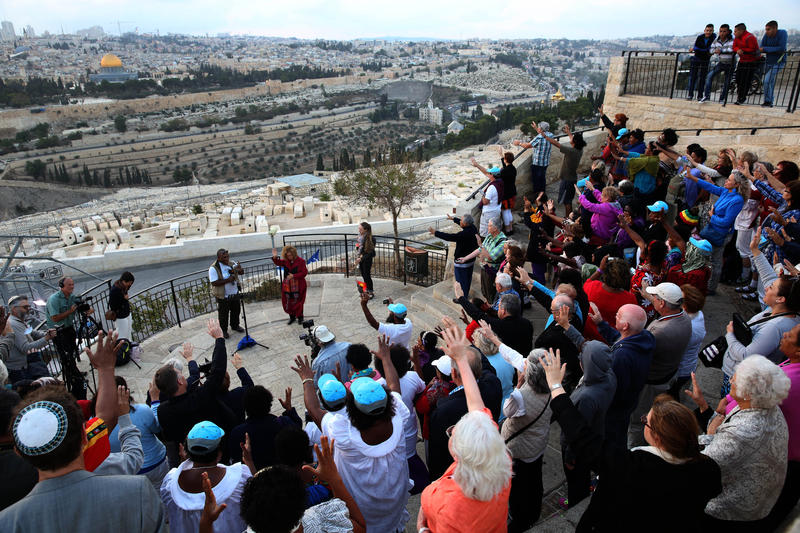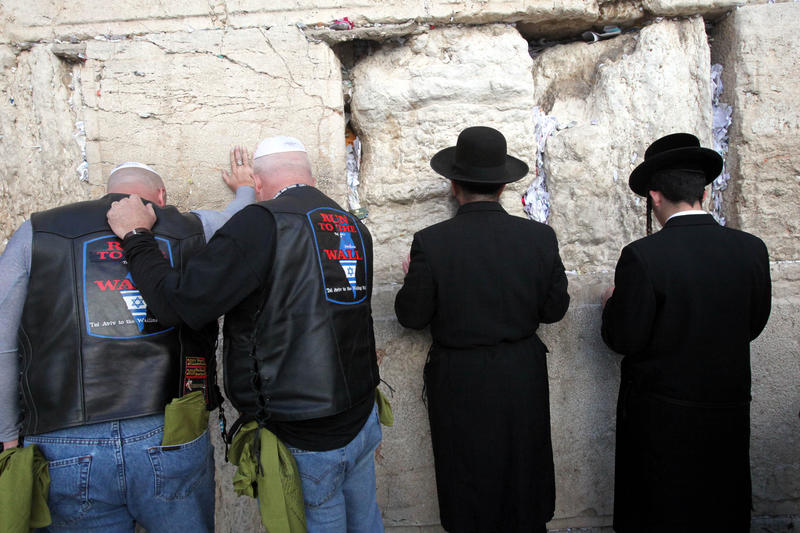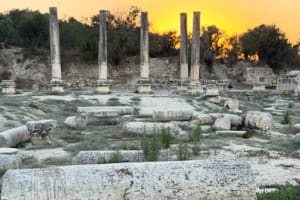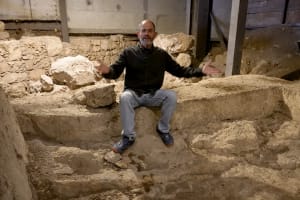A spiritual battle the church can’t afford to lose

Since the October 7, 2023, Hamas attack on Israel and the resulting two-year war, the world has witnessed an alarming and unprecedented surge of antisemitism directed not just against the State of Israel but against all Jews worldwide. Even as we rejoice over the 20 live Israeli hostages who were miraculously released from captivity in Gaza, this ongoing swell of hatred is a wake-up call and reveals how deeply the spiritual battle against God’s covenant people still rages.
While many Christians active in supporting Israel may not fully realize it, we are living in a pivotal moment in history. The progress in Jewish-Christian relations today marks a monumental shift that began developing 500 years ago and is deeply significant. However, we should not take this growing bond for granted, and should remain vigilant, because antisemitism is not only a threat to the Jewish people—it poses a grave danger to the church as well.
Antisemitism: A Legacy the Church Must Confront
For centuries, Christian antisemitism played a role in fostering widespread hostility toward Jews. Many Christians today are unaware of this troubling legacy—and without this understanding, cannot fully grasp the miraculous healing unfolding in this hour. It was this deep-rooted enmity embedded in European Christian history that gave rise to discrimination, expulsions, and even violence against Jewish communities.
Antisemitism, however, is not merely a relic of the past—it persists in new forms. Like a virus, it mutates to fit the ideologies of each new generation. At its core, antisemitism is a spiritual attack on God’s covenant people. As Psalm 83 says, it is those who hate God who seek to cut off His people as a nation, “that the name of Israel will be remembered no more.” The church must recognize this as a spiritual battle against God and His choice of this nation and respond accordingly.
A Turning Point in Church History
This significant transformation between the church and the Jewish people began in the fifteenth century with translation of the Bible into common languages and the advent of the printing press. For the first time, ordinary Christians could read Scripture and discover the Jewish roots of their faith. They learned that Jesus was Jewish, that Christianity emerged from Judaism, and that God’s promises to Israel were still in effect.
This newfound biblical literacy inspired Christian leaders such as John and Charles Wesley and Charles Spurgeon to support the Jewish return to their ancestral land—a belief rooted not in politics but in justice and prophecy. These men, today recognized as Christian Zionists, saw in Scripture a future restoration of the Jewish people to their land.
Two additional events further shifted the church’s posture toward the Jewish people: the Holocaust and the establishment of the State of Israel. The Holocaust forced Catholic and Protestant denominations alike to reevaluate their theology and renounce antisemitism. And when Israel was declared a state in 1948, many Evangelical Christians viewed it as prophecy fulfilled and began engaging with the Jewish people firsthand. These experiences deepened the church’s understanding and appreciation of its Jewish roots.

The Modern Faces of Antisemitism
While the church has made great progress, antisemitism is resurging—this time in more subtle forms. Political antisemitism—often called anti-Zionism—targets the collective identity of the Jewish people through the State of Israel. Though not all criticism of Israeli policy is antisemitic, the line is crossed when such criticism denies Israel’s right to exist, uses antisemitic rhetoric, or applies double standards not expected of other nations.
This demonization of the Jewish State inevitably leads to attacks on Jews, whether inside Israel or elsewhere. When Israeli military actions prompt assaults on Jewish individuals in other countries, the connection is clear: this is not political disagreement—it is antisemitism, and the church should take note.
The Church’s Theological Vulnerabilities
Several trends within Christianity today leave the church vulnerable to antisemitism and are a hindrance to building a spiritually vibrant and theologically rooted church:
This doctrine claims that the church has replaced Israel in God’s redemptive plan. Though often reframed today as “fulfillment theology,” the core idea remains the same: God’s covenants with Israel are void. This belief laid the theological groundwork for centuries of Christian antisemitism and persists as a spiritual threat to Christian understanding today.
2. Biblical Illiteracy
As fewer believers engage deeply with Scripture, they become susceptible to distorted teachings. Some contemporary Christian voices have even dismissed the Old Testament as confusing or irrelevant. In reality, it is the removal of Israel from the biblical narrative that causes confusion. When the Jewish people and their covenants are restored to their rightful place in Scripture, the Bible becomes cohesive and alive.
3. Radical Dominion Theology
A growing segment of the Christian right envisions the establishment of a Christian-led global order. Often called “Christ is King” theology, it is not just about expanding the influence of the kingdom of God in our daily lives but teaches that Jesus will not return until a Christ-centered kingdom has taken dominion on the earth. Jews are blamed for having prohibited the establishment of this kingdom thus far, and, therefore, this ideology is often fueled by conspiracy theories and dangerous antisemitic tropes.
The accusation that all generations of Jews are collectively responsible for Jesus’ death led to Good Friday being one of the most dangerous days of the year for Jews. Though many churches have reformed their Good Friday liturgy and theology, the “Christ-killer” accusation continues to circulate online and in some conservative discourse. This trope is not rooted in biblical truth but in a dangerous distortion of history.
The International Holocaust Remembrance Alliance (IHRA) has developed a working definition of antisemitism and included this trope in a list of modern examples. Misunderstandings about this definition have led some to claim it censors New Testament Scripture, but this is not the case. IHRA refers to the baseless accusation that Jews today bear responsibility for Jesus’ death, not the historical record of the crucifixion found in the New Testament.
A Spiritual Battle for the Church
Antisemitism not only threatens the Jewish people—it aims to sever Christians from their own spiritual roots. As the apostle Paul wrote in Romans 11, the Jewish people are the root that supports the church, and to be cut off from that root is to suffer spiritual death. This is why antisemitism must be recognized as an urgent threat within the church. It robs believers of the foundation of their faith and seeks to disconnect them from the very people who are proof of God’s faithfulness. Churches must be vigilant, biblically grounded, and proactive in resisting this evil ideology.
A Call to Stand
The battle against antisemitism is not only for the sake of the Jewish people—it is for the health and future of the church. We must educate our congregations to rightly discern the Word of God, defend truth, and boldly stand with the people of Israel. In doing so, we align ourselves with God’s purposes and promises, both past and present.

Is All Israel News’ faith-based reporting important to you? Be part of it—help us continue by becoming a $5/month supporting partner.

Dr. Susan Michael is the U.S.A. Director of the International Christian Embassy Jerusalem, Director of the American Christian Leaders for Israel network and creator of the Israel Answers website. She is the author of Encounter the 3D Bible and hundreds of articles located on her blog.
You might also like to read this:

















